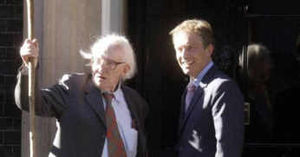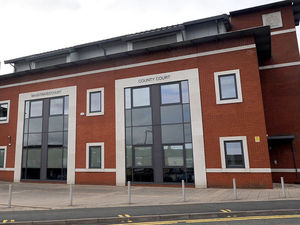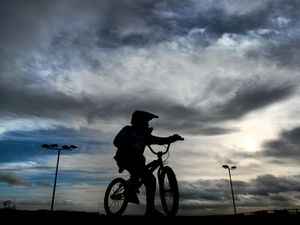A man of principle and honesty
The passing of Michael Mackintosh Foot today is like the passing of an era. No one has matched him since as a Commons orator, and after a year of parliamentary scandal, he stood out as a man of principle and honesty.

Political Correspondent John Hipwood looks back on the life of Michael Foot
The passing of Michael Mackintosh Foot today is like the passing of an era. No one has matched him since as a Commons orator, and after a year of parliamentary scandal, he stood out as a man of principle and honesty.
When Argentina invaded the Falkland Islands in 1982, I sat in the Reporters Gallery in the House of Commons and watched as he "spoke for Britain" about the response the nation should take.
His response was tougher even than that of the Prime Minister sitting opposite him, Margaret Thatcher, who was never knowingly out-muscled.
And this response came from a man whose anti-nuclear, CND credentials were always worn proudly on his sleeve.
It wasn't until 10 years later that Michael Foot eventually left the Commons, but even towards the end of his parliamentary career, MPs flocked to the chamber whenever his name came up on the annunciator board.
Although a man of fierce political beliefs on the Left of the Labour Party, he was also a man of culture, and, as a top journalist, he wrote with style as he spoke with style.
He was also a gentle man who was kind to his political enemies as well as his political friends and to his pets.
When he once took his dog, Dizzy, into a restaurant in Blackpool, having gained permission from the head waiter, he shuffled out quietly with his wife, Jill Craigie, when someone complained. There was no question of leaving the dog outside.
Despite political differences with the then James Callaghan in the dying months of the Labour Government in the late seventies, Mr Foot fought and fought as Commons leader to squeeze legislation through the Commons and to keep the minority administration in office.
He frequently looked pretty shambolic, and was pilloried when, as Leader of the Opposition, he wore what appeared was described by the Press as a donkey jacket at the Remembrance Day ceremony at the Cenotaph.
Mr Foot probably remained puzzled for the rest of his life about the fuss which ensued. It wasn't the most elegant of outer garments, but it certainly wasn't a donkey jacket.
The idea that such a staunch patriot would show any disrespect to fallen servicemen and women was ludicrous.
Although he will forever be remembered as a man from the Welsh Valleys and a great ally of Aneurin Bevan and later Neil Kinnock Mr Foot actually joined the Labour Party in Liverpool, another of the party's lefty hotbeds.
During his period as Labour leader, the party hit rock bottom, but it would be hard to find anybody who blamed Mr Foot, who fought to keep the party together when it was in danger of splitting apart during the brief rise of the Social Democrats.
He took the brickbats with dignity, and rarely if ever took refuge in personal attacks on his opponents.
By 1983 it became clear, following a massive election defeat to Margaret Thatcher's Conservatives, that he was a politician of the past, and he resigned to usher in the Kinnock leadership.
Michael Foot would not have been a great fan of the New Labour Party created by Tony Blair, Gordon Brown and Peter Mandelson.
But you would never hear him say so and certainly not in public.




